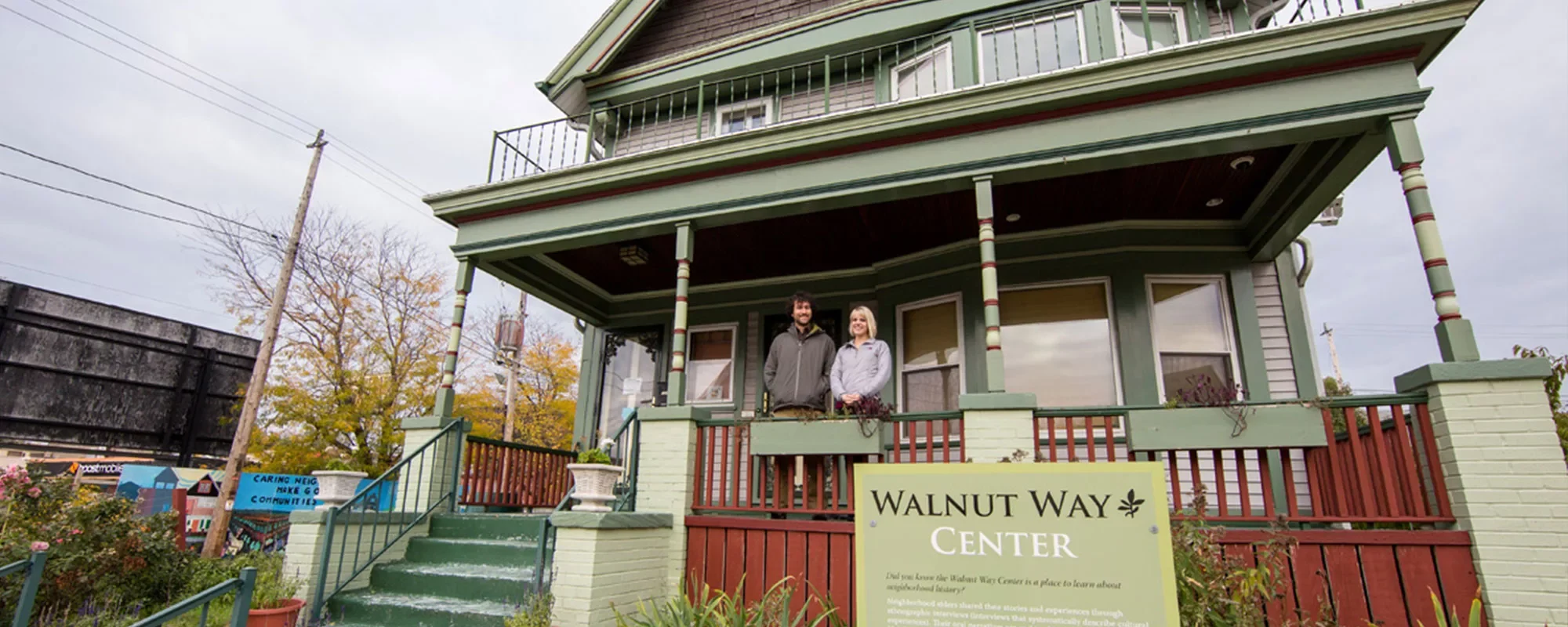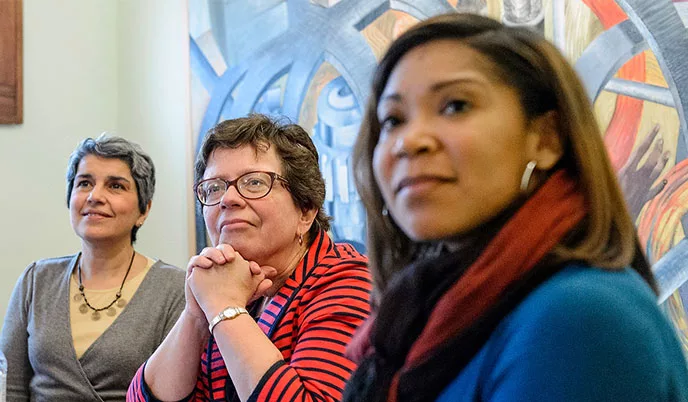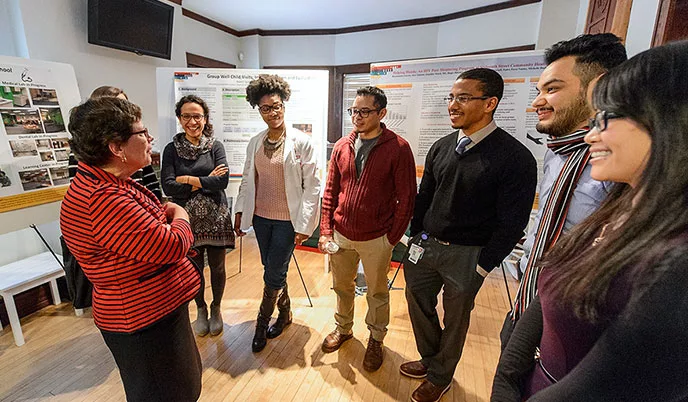Lots that once held broken glass and weeds blossom with gardens and hoop houses. A notorious drug den now houses a nonprofit neighborhood center called the Walnut Way Conservation Corporation.
It’s here that third- and fourth-year medical students enrolled in the University of Wisconsin School of Medicine and Public Health’s Training in Urban Medicine and Public Health (TRIUMPH) Program are undergoing their own transformations. The neighborhood is their classroom, and their efforts target broad public health goals: promote health equity; reduce infant mortality and gun violence; increase nutrition and exercise; increase immunization rates; and prepare for careers as community engaged physicians.
TRIUMPH is the urban counterpart to the Wisconsin Academy for Rural Medicine (WARM). Both programs place medical students in medically underserved communities outside of Madison to address health challenges. For fourth-year medical student Chrissy Ripp, TRIUMPH means working in a predominantly Latino neighborhood on Milwaukee’s south side, where obesity rates and lack of exercise are issues of concern for schoolchildren.
Presenting her project at Walnut Way recently to UW-Madison Chancellor Rebecca Blank, PhD, Ripp said that by reaching out to neighborhood groups and other organizations, such as the Wisconsin Bike Fed, they were able to launch a two-week summer bike camp to teach school-age children and families safe ways to use bicycles for transportation. Other TRIUMPH students presented a range of projects they are conducting in partnership with community organizations. Ripp said the experience was unlike any previous part of her medical education. Her fellow students agreed that what they were learning in TRIUMPH could not happen in a classroom.
Blank asked students about their projects and how this experience would affect how they approach their careers.
It’s a question that the medical community is watching closely. TRIUMPH partners, such as Aurora Health Care in Milwaukee, are contributing to the efforts and watching the effects of projects that aim to address the root causes of health problems.




